While robotic surgery is advancing rapidly, experts warn that medicine cannot function without human judgement, accountability and ethical responsibility.
Watch video below:
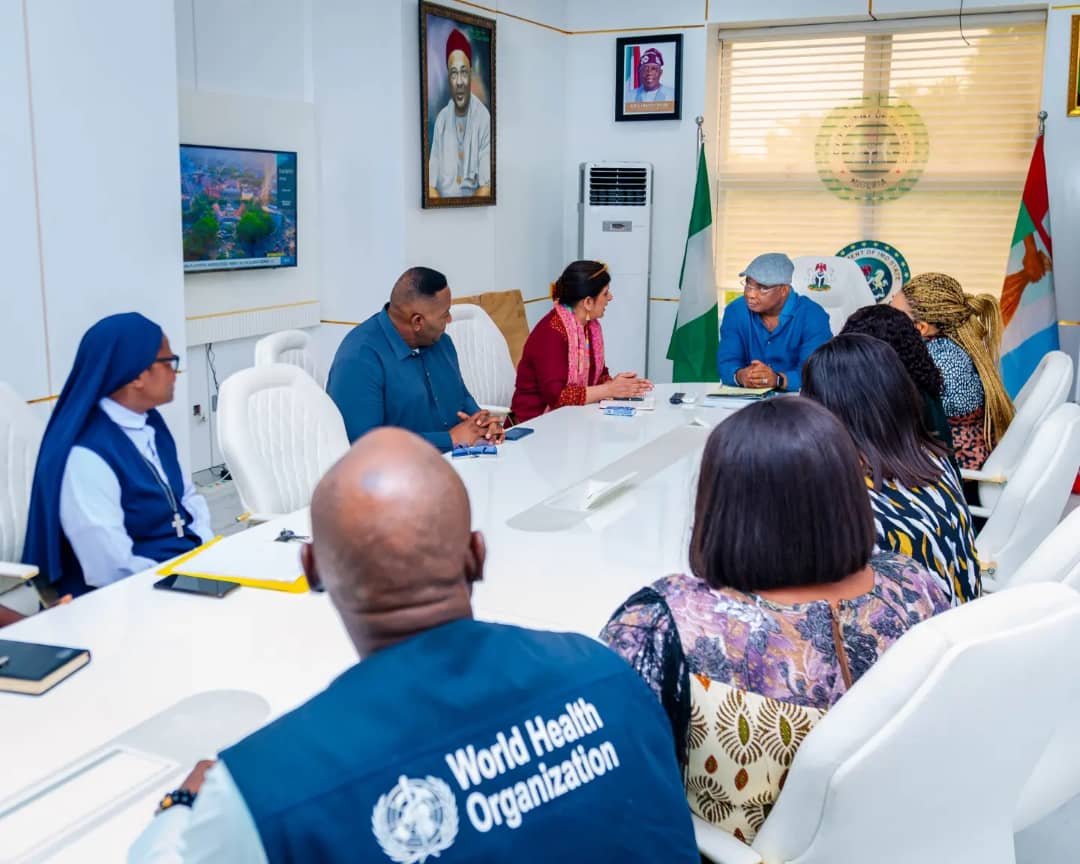
In the company of my wife, @he_chiomauzodimma, I met with a delegation from UNICEF and WHO, led by Nemat Hajeebhoy and Dr. Alfred Ineife as we discussed the health initiatives in our dear State.
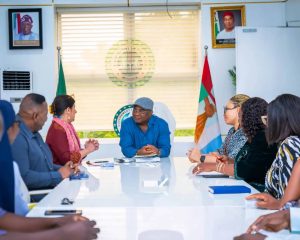
Over the years, my administration has diligently invested in the health sector, implementing reforms aimed at providing quality healthcare services to our people, and during the discussion, I emphasized our commitment to ensuring easy access to healthcare for ndi Imo, particularly our women, with the goal of reducing mortality rates.
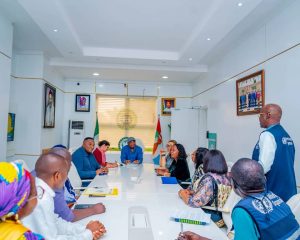
I hinted on our readiness to fully engage with the support frameworks provided by UNICEF and WHO, guaranteeing absolute alignment with their health initiatives for a collaboration that marks an important step towards improving our healthcare systems and enhancing the well-being of our citizens.
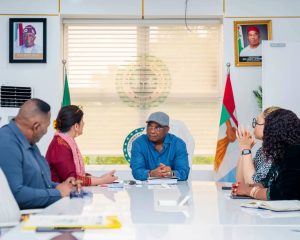
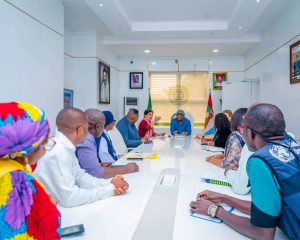
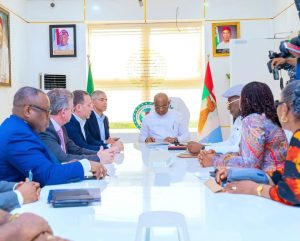
– Hope Uzodimma
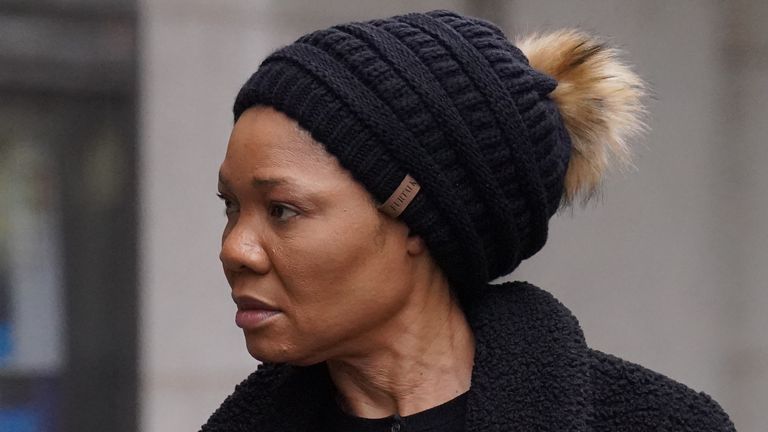
Wife of former Deputy Senate President Ekweremadu returns home following custodial sentence, while her husband remains imprisoned in UK.
The wife of former Nigerian Deputy Senate President, Ike Ekweremadu, Beatrice, has returned to Nigeria after being released from a prison in the United Kingdom.
Her arrival in the country on Tuesday, January 21, 2026, followed the completion of the custodial portion of her sentence for her role in a high-profile organ-harvesting conspiracy.
Mrs Ekweremadu was received by family members and close associates at the Nnamdi Azikiwe International Airport in Abuja, marking her first time on Nigerian soil since the legal saga began in mid-2022.
While her return has sparked celebrations in her hometown of Mpu, in the Aninri Local Government Area (LGA) of Enugu State, it came amid the continued incarceration of her husband in London.
The return of the former Deputy Senate President’s wife followed her May 2023 conviction by the Old Bailey in London.
She was sentenced to four years and six months in prison for conspiring to facilitate the travel of a 21-year-old Lagos Street trader to the UK for the purpose of harvesting his kidney.
The organ was intended for the couple’s daughter, Sonia, who suffered from a chronic kidney condition.
The case, which was prosecuted under the UK’s Modern Slavery Act 2015, marked the first time the legislation was used in a human organ-harvesting prosecution.
Under UK law, non-violent offenders are typically eligible for release on license after serving half of their custodial term.
Reports indicated that Mrs. Ekweremadu’s release was further facilitated by her good conduct record and by a broader UK government initiative to address severe prison overcrowding.
Despite his wife’s return, Senator Ekweremadu remains in a UK correctional facility serving a significantly longer sentence.
In May 2023, the former lawmaker was handed a nine-year and eight-month term, as the court deemed him the primary driver of the conspiracy.
Efforts by the Nigerian federal government to secure his release or repatriation have so far been unsuccessful.
In late 2025, a high-powered diplomatic delegation visited London to explore a Prisoner Transfer Agreement (PTA) that would allow the Senator to serve the remainder of his term in a Nigerian facility.
However, the UK Home Office reportedly rejected the proposal in November 2025, citing concerns over the guarantee of the sentence’s continued enforcement if transferred to the Nigerian jurisdiction.
The third convict in the case, Dr. Obinna Obeta, who was described by the prosecution as the medical “middleman,” continues to serve a 10-year prison sentence in the UK.
Meanwhile, the couple’s daughter, Sonia, who was cleared of all criminal charges during the 2023 trial, remains in the United Kingdom, where she is reportedly receiving ongoing medical treatment for her condition.
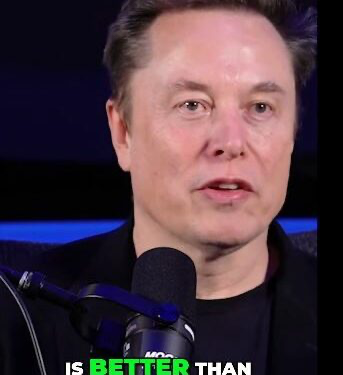
Elon Musk has asserted that medical degrees may soon become obsolete, as AI-powered robots are expected to surpass human surgeons in performance.
The Tesla and SpaceX CEO claimed that humanoid robots like Tesla’s Optimus will outperform the world’s best surgeons within three years.
Speaking on the Moonshots podcast hosted by Peter Diamandis, Musk argued that human doctors are slow to train, prone to error, and fundamentally limited.
“Right now there’s a shortage of doctors and great surgeons,” Musk said.
“[It takes] a super long time to learn how to be a good doctor Doctors have limited time, they make mistakes. How many great surgeons are there? Not that many,” he added.
“So don’t go to medical school?” Diamandis asked Musk.
While robotic surgery is advancing rapidly, experts warn that medicine cannot function without human judgement, accountability and ethical responsibility.
Watch video below:


In a recent development, the ongoing controversy surrounding Ayo Labinjoh, the mother of Anu and Afrobeats superstar, Davido, over partenity dispute has intensified.
It’s worth noting that Ayo Labinjoh and Davido have been in the headlines over paternity dispute, with the singer claiming five DNA tests yielded negative results
In a fresh Instagram post, Ayo shared an existing DNA test result contradicting Davido’s earlier claim.
She emphasized that the DNA test result was valid, while investigative journalist, Kemi Olunloyo has fought vigorously for her daughter.
Her post reads,“The ONLY DNA 


Meanwhile, Davido has revealed that his father, Dr. Adedeji Adeleke, played a significant role amid his paternity dispute with Ayo Labinjoh.
In a recent tweet on X (formely Twitter), the ‘Feel’ crooner shared that his father insisted that he undergo DNA test.
“You guys don’t know my father..He’s even the one that forced me to go. Adeleke’s we don’t play about Blood on this side”, The tweet reads.
Meanwhile, Cubana Chief Priest’s alleged baby mama, Helen Atti, has weighed in on Davido’s paternity dispute.
She took to the singer’s comment section, writing, “Please just help her, you can still adopt her, it doesn’t mean anything. I know you love children a lot, not like Pascal Okechukwu, big belle for no reason”.
See below…..
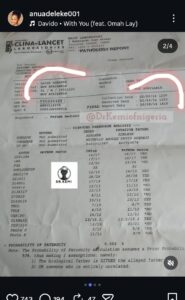
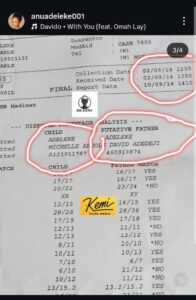
US court acquits Air Peace boss, slams Mayfield $4000 fine


NYA demands release of ‘abducted’ Imo chairman, preaches good governance


Mexico’s new president causes concern just weeks before the US elections


Putin invites 20 world leaders


Russia bans imports of agro-products from Kazakhstan after refusal to join BRICS
Bobrisky falls ill in police custody, rushed to hospital
Bobrisky transferred from Immigration to FCID, spends night behind bars
GOVERNOR FUBARA APPOINTS COUNCIL MEMBERS FOR KEN SARO-WIWA POLYTECHNIC BORI